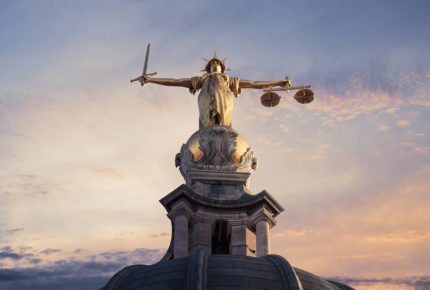

Holding a position as the director of a company is an important responsibility, and one that the vast majority of directors take very seriously. Directors understand that their responsibilities extend not only to ensuring that the company does well, but that the company is in full compliance with applicable laws and that it is doing its best to ensure a safe environment for those working in and with it. For these reasons alone, being subject to director disqualification proceedings can be a very stressful, upsetting, and disruptive period of time. This distress is compounded if the proceedings followed an insolvency, which in and of itself is very difficult. In this article, we examine director disqualification proceedings in England and Wales and outline some of the key factors that you need to know about if you are subject to those proceedings yourself.
When do director disqualification proceedings occur?
Individuals may be disqualified from acting as a director of a company for a number of reasons, including:
- being subject to criminal charges that relate to their role as director
- failing to file statutory documents at Companies House (for example, confirmation statements or financial accounts)
- committing fraud
- being declared bankrupt
It is important to note that the Secretary of State for Business, Innovation and Skills has the legal authority to order an investigation into a director at any time, but most often investigations are ordered in the two years following the entering into insolvency of the company.
Note that in cases of insolvency, it is not the insolvency itself that gives rise to director disqualification proceedings. Rather, it is the fact that the Secretary of State considers there to be sufficient evidence of misconduct, i.e. of the director acting against the public interest.
How does a director get disqualified?
The director disqualification process can be a long and complex one, but there are certain stages that occur in most, if not all, proceedings. These include:
- Provision of notice
The first stage of director disqualification proceedings is notification. This means that the director is sent a letter in the post informing them that the decision has been made to commence disqualification proceedings against them.
- Opportunity for disqualification undertaking
In the letter notifying the director of the commencement of disqualification proceedings, there will be an opportunity for the director to offer disqualification undertaking.
This essentially just means that the director may at that point seek to disqualify his or herself voluntarily, thus avoiding the need to defend the directorship (and associated legal costs).
Disqualification undertakings were introduced in 2001 as a means of avoiding lengthy court proceedings for those directors who were willing to consent to disqualification to avoid contest in legal proceedings.
As per the Company Director Disqualification Act 1986, if a director does undertake disqualification, he or she faces disqualification for between two and 15 years and may not:
- serve as a director of a company
- act as a receiver of a company’s property
- directly or indirectly be concerned or take part in the promotion, formation or management of a company unless he or she has permission from the court
- act as an insolvency practitioner
- Subjection to a Compensation Order
In the same letter that details the points above will be notification of whether the director will be subject to a Compensation Order.
A Compensation Order is a legal order from the Court requiring a director to compensate the company for his or her misconduct. The introduction of Compensation Orders was intended to prevent directors from simply undertaking disqualification and getting away with not remedying the harm (usually financial loss) caused by their wrongdoing at the helm of the company.
Compensation Orders issued on the basis of strict liability, which means they are very hard to dispute. The consequences of being subject to a Compensation Order is repayment of losses to creditors, the largest of which is usually HM Revenue & Customs. In this regard, directors are personally liable to repay the monies owed.
- Defending against a disqualification claim
Despite the potential costs involved, many directors choose to defend against the disqualification claim. This is certainly a worthwhile course of action if there was no wrongdoing and the director needs to preserve his or her reputation and freedoms to manage a company, but nonetheless defence is a considerable undertaking. There are three parts of the defence process:
- Pre-action representations: This period of time before formal proceedings in court gives the solicitor the opportunity to make representations. In most cases, the solicitor will be trying to establish that the disqualification claim was made without adequate evidence and only on the basis of the director’s misunderstanding, or – sometimes – the inability of the Insolvency Service (acting on behalf of the Secretary of State) to see the director’s case. This may be a lengthy process, which could take anywhere between one and two years in most cases.
- Disqualification proceedings in court: If the Secretary of State has decided that there is a reason to bring proceedings against a director, the matter will go to court. The priority of the director in court is to establish that there is no basis to bring a claim of disqualification, or to minimise the extent to which misconduct is found to reduce any potential penalties (length of disqualification, for example). Exactly what is involved at this stage of the proceedings varies considerably between cases and thus cannot be outlined in detail here. That being said, the director should expect to have to defend his or her conduct by explaining situations and providing evidence where available. A solicitor will advise on the best tactics to employ at this stage, as there is significant risk involved in the defence and it is important not to jeopardise any future chances of serving as a director or other officer within a company. If misconduct is found, the director faces three ‘brackets’ of penalty depending on the severity of the wrongdoing:
-
- 2-5 years – the “lower bracket”
- 6-10 years – the “middle bracket”
- 11-15 years – the “higher bracket”
- Discontinuance of proceedings: When notified of the proceedings, the director will have an opportunity to negotiate with the Insolvency Service. It is common at this stage for the proceedings to be discontinued owing to a lack of basis for the claim. However, it is also possible for the case to proceed to trial and then for proceedings to be discontinued. Usually, if the Secretary of State withdraws the claim, it is because there has been some revelation in the case that makes the evidence against the director weak. If this happens, the case will simply be dropped and no further action will be taken.
What is the director disqualification time limit?
If director disqualification proceedings are being brought by the Secretary of State in relation to an insolvency, the State has three years in which to bring an investigation, assuming the insolvency commenced after October 2015. Before October 2015, the law was different and the Secretary of State only had two years in which to commence proceedings.
If an investigation is not brought within the three-year limit, any further prosecution of the director is barred by the statute of limitations. This means no further action can be taken against the director on those matters.
Can disqualified directors be shareholders?
The law is not entirely clear on whether directors who have been disqualified may act as shareholders of a company. Two important statutes – the Company Directors Disqualification Act 1986 and the Companies Act 2006 – appear to be in conflict. While the former was enacted to prevent unfit directors from being officers in companies, the latter requires that shareholders agree to ‘form a company’.
For now, most legal experts are of the view that the law does not prevent a disqualified director from having ownership interests in a company, but it does prevent them from running the company.
In this regard, it seems disqualified directors may advise other directors on the running of a company, but they may not run the company with full authority themselves. This is, however, a very complex area of law and disqualified directors should be very careful indeed not to violate further any rules in relation to their involvement in a company.
How can I find a director disqualification solicitor?
If you are facing director disqualification proceedings, it is imperative that you get expert legal advice from a reputable firm, as the consequences and costs involved in director disqualification proceedings are considerable.
For further assistance with any upcoming, pending, or completed director disqualification proceedings, look no further than Stuart Millar Solicitors. The experts at Stuart Millar Solicitors have extensive experience in company law and can advise you on the best course of action no matter what stage your case is at. For further information and to arrange a no-obligation consultation, contact Stuart Miller Solicitors today.

